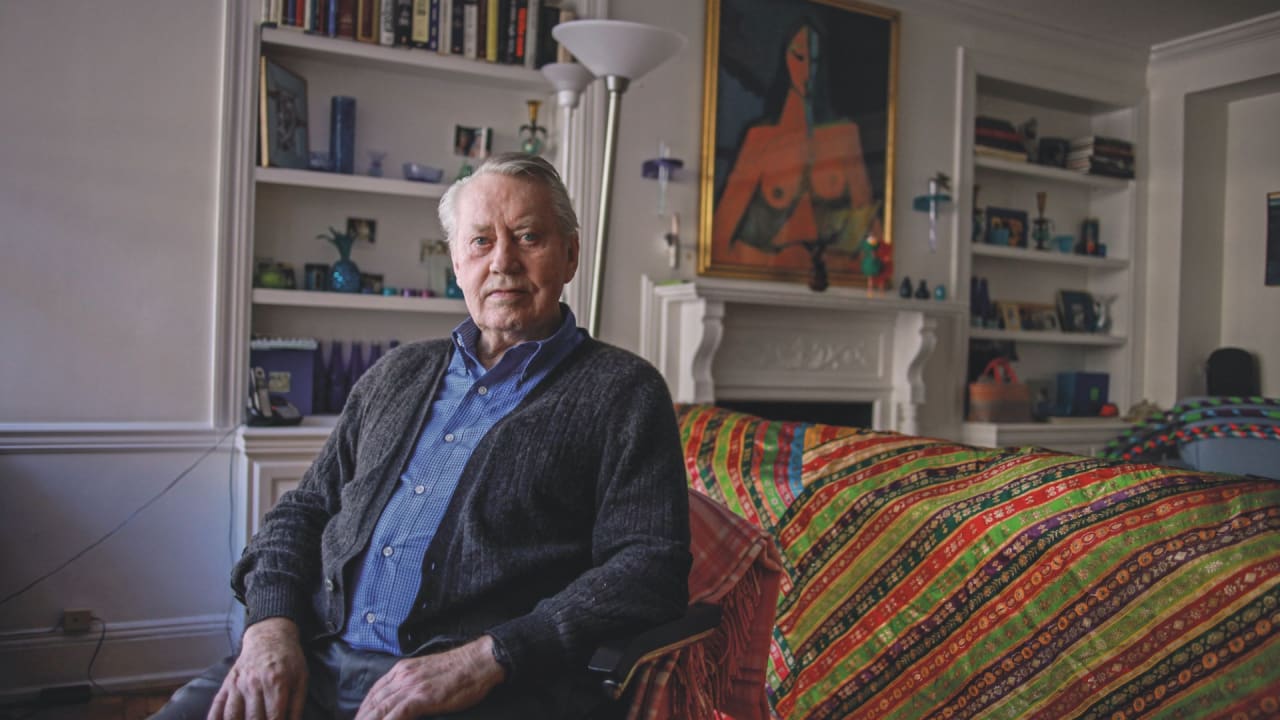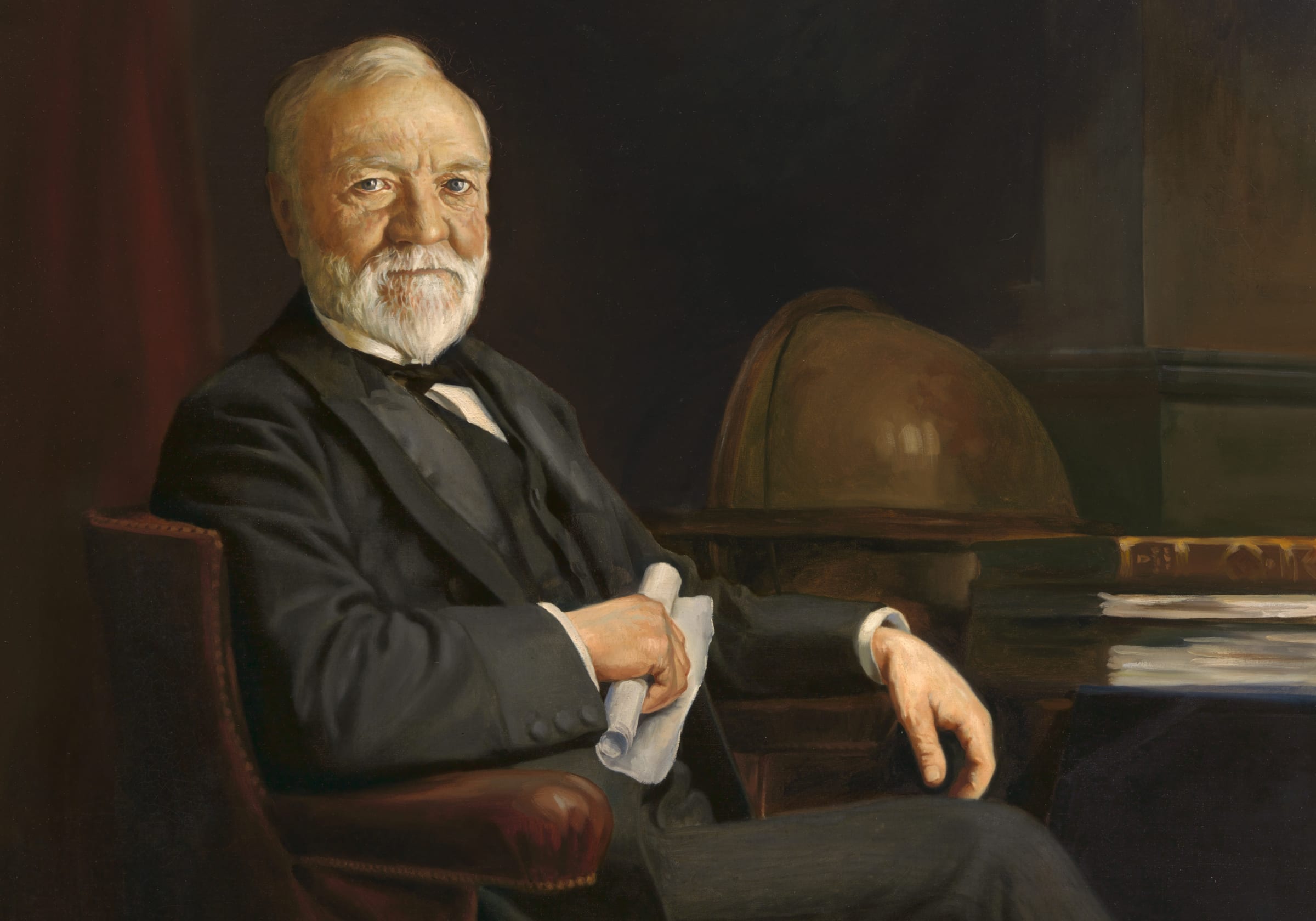
Philanthropist Chuck Feeney died on October 9, at 92. He founded one of the largest private charitable foundations in history, giving away his entire fortune within his lifetime. He was almost obsessively secretive in his giving, and set a standard of seriousness which inspired the Giving Pledge and many of its pledgers.
Feeney was born at the tail end of the Great Depression into modest circumstances, raised by blue-collar Irish-American parents, and became the first of his family to attend university.
The story of his fortune began after Feeney enrolled in the U.S. Air Force, soon deployed to Japan as a radio operator during the Korean War. The 1944 GI Bill of Rights had entitled returning GIs to a course of study after WWII, and the scheme was renewed for Korean War veterans. He used the allowance to attend Cornell, graduated in 1956, then travelled to Europe to indulge a newly developed wanderlust.
One night in a bar in Villefranche he met an Englishman, Bob Edmonds. Edmonds had noticed that U.S. sailors were entitled to buy up to five bottles of spirits at ports, duty free, and have them shipped back home as unaccompanied baggage. The savings were significant even accounting for the shipping. In the immediate post-war years, ‘duty free shopping’ had emerged as a half-familiar concept, but the business had remained uncompetitive. So Edmonds had noticed an opportunity: take orders for European liquor from these sailors at port towns in Spain and elsewhere, arrange for shipping back home, and take a cut. The trick was finding a way to board the ships as they docked. This required some schmoozing, and the kind a Cornell certificate and U.S. military service record could help with. Edmonds explained he was looking for help from a partner like Feeney; Feeney obliged.
The scheme worked fantastically. But while Edmonds was visiting the Caribbean in search of new opportunities, Feeney heard that an old classmate had made his way to Europe also. Robert Miller was one year Feeney’s senior at Cornell, agreed to become Feeney’s business partner and see what could become of the duty free scheme he had going. Soon not just sailors were visiting port towns, but an influx of tourists to Europe, largely from the U.S. They opened stores, not just in port towns but in major cities too. They expanded from alcohol to watches, perfumes, and jewellery.
In 1960 Feeney arranged to visit Harry Adler, the owner of ‘Duty Free Shoppers’ (DFS) and a potential rival. Feeney had considered arranging an ad deal, where Adler might promote his products. But Adler was unexpectedly forthright: his business was failing, nothing but debt. So Feeney offered to buy the entire company, and to employ Adler until the deal went through.
Next came airports, fast becoming more accessible to middle-class tourists. First Hong Kong and Honolulu, later outlets in Europe and the Americas, Asia, Oceania. Their duty free concession stands at airports started as a sideshow but grew to become the main event. Feeney and Miller inherited a failing business and made it a growing empire.
As his wealth grew Feeney had begun to think about what to do with it. He was never especially comfortable with the standard options for the wealthy to conspicuously consume their money. Wealth felt more like a responsibility. “I am not really into money,” he told the reporter. “Some people get their kicks that way. That’s not my style.”
So he began to give it away in a piecemeal fashion — $10,000 to the current dean of the catering school he attended in Cornell; a lump sum for the provision of a sports facility for his children’s school in Nice. In the late 70s, a friend of Feeney’s had mentioned the name of Andrew Carnegie — someone he might want to read about. Also the son of an immigrant to the U.S., Carnegie had accumulated enormous wealth in iron and steel, breaking strikes with small militias and implementing gruelling working hours in the process. Then he disbursed almost all of it to universities and foundations[1]. His essay called ‘The Gospel of Wealth’ laid out his philosophy of giving. It’s essentially an early earn-to-give manifesto, impelling its reader to accumulate as much wealth as possible, then give it all away for the betterment of humanity. "The man who dies thus rich dies disgraced."

Feeney read this, and in 1982 was moved to found something more more lasting. This ‘something’ was The Atlantic Foundation, the first of The Atlantic Philanthropies. But there was no fanfare, because at the same time Feeney had decided his giving — and thus his role as the funding source for Atlantic — would be entirely anonymous. Atlantic Philanthropies would require that grantees do not disclose the source of their donation.
While silent about his role, Feeney was nonetheless restlessly engaged with how his money was being spent. He travelled the world to meet grantees, and beneficiaries of their work. A biography recounts that he told a correspondent “his idea of helping charities was not simply handing money over but personally seeing that it was effectively used to help as many people as possible”.
There are some advantages to anonymity: potential grantees will be frank and candid, not imagining they’re supposed to be impressing you. You can be confident that reputational effects aren’t clouding your judgement. And if you don’t ask for naming rights, you can leverage more donations from those who do. But it’s hard not to imagine Feeney’s secrecy had a more personal, psychological source; a kind of reflexive modesty.
To finance Atlantic, Feeney transferred his entire 38.75% stake in DFS to Atlantic in 1984. For more than a decade, even Feeney’s partner Miller was oblivious to the transfer of ownership. Feeney’s philanthropic identity was revealed in 1996, by force, after Feeney had proposed a sale of their shares in DFS to a French luxury conglomerate. Miller had opposed this plan and prepared a presumptive lawsuit; and Feeney anticipated that the legal battle would compel him to disclose how he no longer owned the share in DFS which Miller took him to own, but had transferred it to Atlantic. So Feeney agreed to out himself. The New York Times broke the story: “He Gave Away $600 Million, and No One Knew”. Atlantic made $1.63 billion from the deal.
Since transferring his stock in 1984, DFS grew tremendously, and Feeney had reinvested unspent funds into other businesses with similar success. Consequently Feeney ultimately gave away not just $600 million but closer to $8 billion in all.
An underappreciated fact about billionaire philanthropy is that it appears to be the norm, not the exception, to die having failed to spend all — even most — the money a billionaire commits to giving. Sometimes this is a considered strategy, as in Ben Franklin’s endowment to the cities of Boston and Philadelphia — designed to go untouched for a full century while it accrued interest — or as in newer thinking around ‘patient philanthropy’. But mostly this happens (as far as I can tell) through some combination of distraction, unambition, hesitance around delegating grant decisions, and mostly because it is very difficult to find and prioritise and perform due diligence on and process enough charitable grants to total over one billion dollars.
Chuck Feeney gave everything. Before the ‘96 lawsuit, magazines would speculate on how many billions his net worth amounted to; unaware he was even then worth less than $5 million. He lived his last years in rented accommodation. He preferred to fly coach until his late 70s, owned no car, and wore that coveted timepiece, the Casio F-91W.
Does it look like that $8 billion was directed mostly according to cost-effectiveness thinking? Did it coincide much with causes most celebrated by EA? Honestly, no. I get the sense Feeney liked to think about his giving in terms of giving back to institutions he benefited from, and building personal connections without locales across the world, generating a sense of obligation through closeness. But less so maximising 'impact' or 'good' in the floaty, faceless sense. His single largest beneficiary was his alma mater Cornell, to which he gave nearly $1 billion. He gave to public health works in Vietnam; universities and research institutions in Australia, Ireland, and Northern Ireland; a fellowship program with a remit I’m not clear on. He also cared about systemic change — especially the peace process in Ireland — and put large amounts of control in the hands of local leaders. Nor was he afraid to leverage his social and political capital to push for changes he wanted to see, or to give political causes in his personal giving, including Sinn Féin.
It’s also not clear that Feeney’s commitment to anonymity is worth celebrating in itself. After all, giving openly is one way to inspire others to follow your lead, especially if you’re in a position to give large amounts, or you can demonstrate ways to think about how to do more good per dollar. Not to mention how much ‘anonymous’ giving involves a game of getting others to know you’re a great person while maintaining plausible deniability that you wanted them to think you’re a great person[2]. But Feeney’s anonymity seemed genuine, I claim. Reports from those who knew him corroborate the ultra-humble image. Even after his link to Atlantic Philanthropy was revealed, he avoided the media and never became especially well-known. And if that’s right, one reason to celebrate his anonymity is as a kind of existence proof of billionaire philanthropy motivated by, as far as anyone can tell, pure altruism.
But I also think there is a strong case that Feeney’s approach to giving inspired significantly much more billionaire philanthropy, including giving which ultimately was more explicitly guided by impact. The Giving Pledge was founded in 2010 by Warren Buffett, Melinda French Gates, and Bill Gates, both parties pledging to give away 99% of their fortunes. The same year, Facebook co-founder Dustin Moskovitz and Cari Tuna also joined the Pledge. To date, total pledges to the Giving Pledge add up to the best part of a trillion dollars[3]. Feeney signed the pledge in 2011, but more importantly there is a case that he inspired it. “Chuck has set an example,” said Buffett in a 2014 event, “[he] is my hero and Bill Gates’ hero. He should be everybody’s hero”.
Feeney died on October 9, 2023, at the age of 92.
More:
- He Gave Away $600 Million, and No One Knew
- Wikipedia page
- Book: The Billionaire Who Wasn't: How Chuck Feeney Secretly Made and Gave Away a Fortune
- ^
The Carnegie Corporation of New York remains a major grantmaker on peace and security work, among other areas.
- ^
- ^
Though, again, it's unclear how this translates into donations within pledgers' lifetimes.

I'd like to add three aspects of Chuck's philanthropy that are not mentioned in the post and that he shared with us for a report we published in 2022 called "Influence for Good":
See https://www.ashoka.org/en-us/influence-for-good for a profile on Chuck and more information on these principles.
Thanks for these details! I updated the relevant paragraph to include them.
I recently heard a great episode on him on this podcast: https://spotify.link/pyTNXYsTODb
Executive summary: Philanthropist Chuck Feeney has died at 92. He gave away his entire $8 billion fortune anonymously and inspired effective giving.
Key points:
This comment was auto-generated by the EA Forum Team. Feel free to point out issues with this summary by replying to the comment, and contact us if you have feedback.
Thank you Chuck ❤️